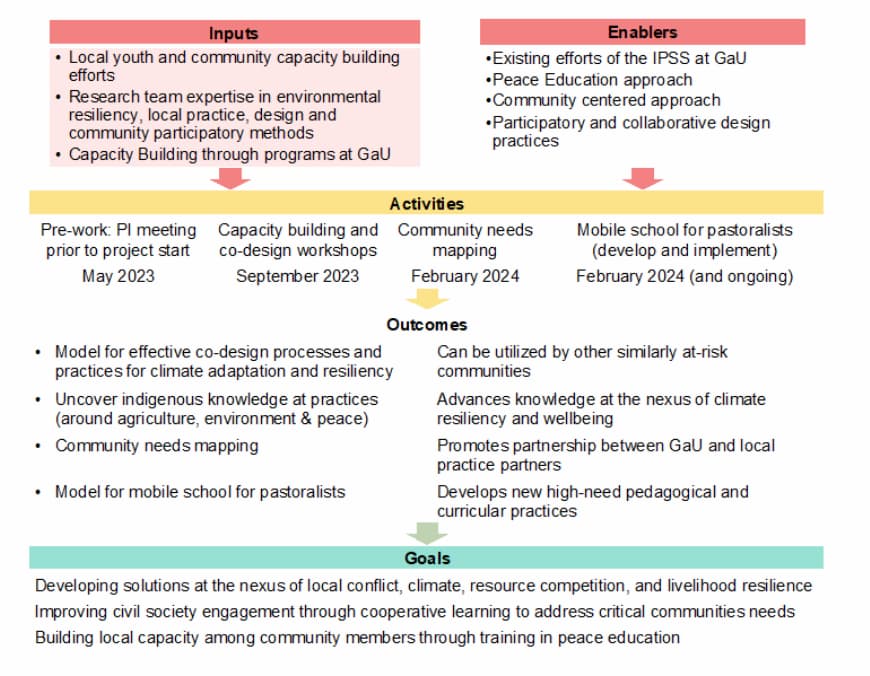Promoting Community Climate Resilience and Wellbeing in Northern Kenya through Peace Education
FY24 SI-RITEA Type A
Abstract

In partnership with Garissa University (GaU) in Northern Kenya, which serves approximately 61% of Kenya’s geographic area, this research project is situated at the convergence of climate resilience and wellbeing. We will use a multidisciplinary peace education approach to co-design and build local capacity for climate resiliency with our collaborators at GaU. Garissa County has experienced severe environmental challenges, such as drought, resource conflict, and related shocks to pastoral livelihoods.
The goals of the project are:
- Developing solutions at the nexus of local conflict, climate, environmental resource competition, and livelihood resilience in Northern Kenya by leveraging indigenous knowledge and expertise
- Improving civil society engagement through mechanisms for cooperative learning to address critical community needs, such as resource competition and livelihood resilience
- Building local capacity for climate resiliency among community members through training in peace education
The project partnership team comprises experts in Environmental Studies and Agriculture (Dr. Mohamed at GaU), Resilient Systems (Dr. Henriques at James Madison University) and Human-Centered Engineering and Design Education (Dr. Hira at Boston College).
Presentations
- PeaceLab Studio: Bridging Education and Innovation for Climate Resilience and Peacebuilding in Northern Kenya. Justin Henriques (James Madison University, USA), Jonathan Henriques (Garissa University, Kenya), Avneet Hira (Boston College, USA), Ahmed Mohammad and Fat-ha Aden Abdirahman (Garissa University, Kenya). Presented at Network for Education and Research on Peace and Sustainability (NERPS) Conference 2024 in Hiroshima, Japan
Additional Accomplishments
- Carnegie Corporation of New York programs: (1) Peacebuilding in Africa and (2) Higher Education & Research in Africa. These grants are considered via invitation, and plan to reach out to program officers based on pilot work in Fall 2024

